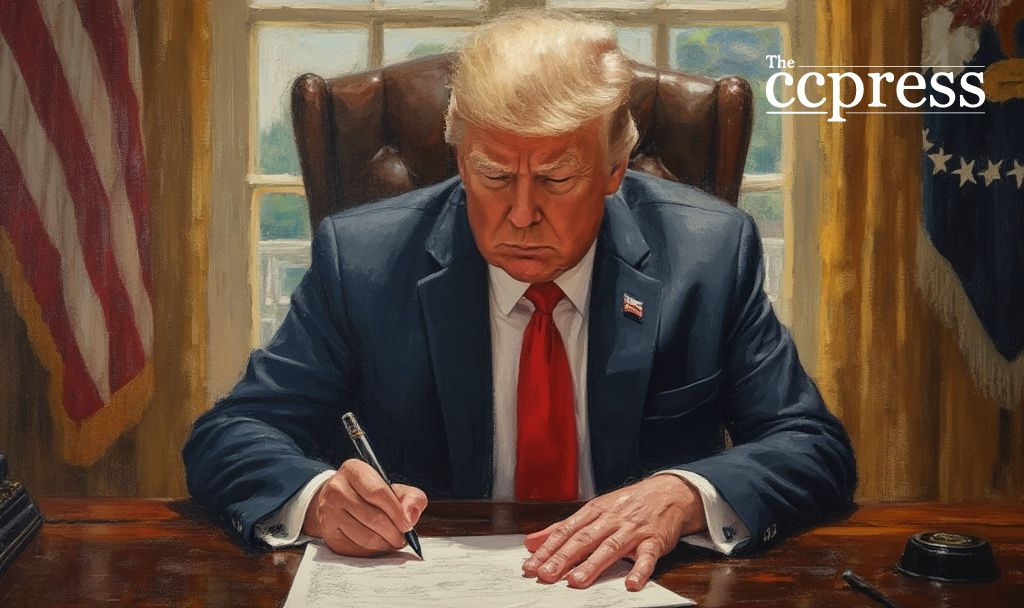- Main event, leadership changes, market impact, financial shifts, or expert insights.
- Landmark crypto law enhances DeFi innovation.
- Repeal reduces regulatory burden on decentralized platforms.

In Washington D.C., on April 10, 2025, U.S. President Donald Trump signed the first crypto-related bill into law, repealing an IRS rule impacting DeFi platforms.
The event is significant as it supports the U.S. stance towards crypto growth, potentially spurring market optimism and regulatory acceptance.
Repealing the IRS Rule
Trump’s administration has underscored its pro-crypto approach by enacting legislation that repeals IRS regulations affecting DeFi platforms. This is viewed as pivotal for fostering technological growth and safeguarding digital privacy. Rep. Mike Carey of Ohio and Sen. Ted Cruz of Texas were leading advocates for this legislative change, heralding the repeal as a stepping stone for DeFi platforms. The repeal eliminates former compliance barriers, expected to inspire further innovations.
DeFi platforms, including Uniswap and Aave, anticipate regulatory ease, potentially boosting confidence. Increased liquidity is expected as platforms engage more freely without former IRS constraints. Financially, the legislative move is predicted to position the U.S. as a leader in the crypto space.
“By repealing this misguided rule, President Trump and Congress have given the IRS an opportunity to return its focus to the duties it already owes American taxpayers instead of creating unnecessary hurdles.” — Rep. Mike Carey, U.S. Congressman, Ohio
The Trump administration aims to balance regulatory oversight between the SEC and CFTC, fostering secure yet growth-friendly environments.
This law represents an advanced stride in U.S. crypto policy. Looking forward, potential impacts may include stimulated technological innovation, encouraged investments, and strengthened regulatory frameworks shaping the future of digital finance globally.


























